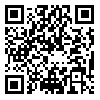شمارۀ جدید فصلنامه (زمستان 1403) منتشر شد
Volume 11, Issue 2 (10-2020)
Social Problems of Iran 2020, 11(2): 65-96 |
Back to browse issues page
Download citation:
BibTeX | RIS | EndNote | Medlars | ProCite | Reference Manager | RefWorks
Send citation to:



BibTeX | RIS | EndNote | Medlars | ProCite | Reference Manager | RefWorks
Send citation to:
roozkhosh M. (2020). A critique of social capital’s researches in Iran. Social Problems of Iran. 11(2), 65-96.
URL: http://jspi.khu.ac.ir/article-1-3351-en.html
URL: http://jspi.khu.ac.ir/article-1-3351-en.html
PhD in Sociology from the University of Tehran , m_ roozkhosh@yahoo.com
Abstract: (2360 Views)
The article critically examines the applications of the concept of social capital in Iran. It argues that just as the concept gained in popularity among social researchers, political pundits and even elites in Iran, It has also descended into chaos, losing its analytical utility. The article will briefly go over the history of the idea of social capital in the west as its critiques. Then it will turn to the Iranian literature on the concept, particularly focusing on their problematization, analytical frame and policy recommendation. What this article focuses on is the gap that has emerged between problematization, the analytical tool, and the "policies" and "strategies" of the suggestions proposed in these works. In an attempt to explain the problems and transformations of Iranian society. These researches tend to discuss poverty, inequality, structure of government and the changes of economic, social and political relations, while they have not been able to provide an appropriate frame work and conceptual tool based on "Social Capital". And develop conceptual tools appropriate to such an analysis. This article argues that this confusion is not simply due to the ignorance of the researchers but mainly related to the ambiguity of the concept of "Social Capital" itself.
Subject:
Security
Received: 2020/07/26 | Accepted: 2020/09/22 | Published: 2021/03/14
Received: 2020/07/26 | Accepted: 2020/09/22 | Published: 2021/03/14
References
1. Asadi, Ali et al. (1978). Cultural trends and social attitudes in Iran, Research Institute for Information Science and development.
2. Asadi, Ali et al. (1981). Cultural trends and social attitude in Iran, Research Institute for Information Science and development.
3. Iranian Social Capital Survey (2005). nationwide survey, Tehran: ministry of interior.
4. Iranian Social Capital Survey (2015). nationwide survey, Tehran: ministry of interior.
5. Iranian Social Capital Survey (2018). nationwide survey, Tehran: ministry of interior.
6. Putnam, R. D. (2001). Democracy and Civic Traditions, Translated by mohamad taghi delforoz, Tehran: salam press.
7. Putnam, R. D. (2005). Interview with Putnam, in social capital, truth and democracy, ed by kian tajbakhsh, Translated by Pooyan, Hasan and Khakbaz, Afshin, Tehran: Shiraze Research and Publishing Company.
8. Pakseresht, S. (2015). Social Capital in Iran: Status, Challenges and Strategies, Hamedan: nooreelm press.
9. Tanhaei, H. A & Hazrati, S. Z. (2006). A theoretical study of social capital Research in Iran, Journal of behavioral sciences, fall 2009, Volum1, Number1:29-52.
10. Javadi, Reyhaneh (ed) (2016). Essays on social capital in Iran, Tehran: Research Center for Culture, Art and Communication.
11. Donzelot, J. (2016). The invention of the social, Translated by Aram Gharib, Tehran: Shiraze Research and Publishing Company.
12. Zokaie, M. S. (2017). Social capital and generations in Iran, Tehran: Research Center for Culture, Art and Communication.
13. Saei, A (2020). Policy papers on social capital, Tehran: Tarbiat Modares University Press.
14. Siahpoosh, A. (2008). Meta-Analysis of studies on social capital in Iran, Cultural Strategy Quarterly, 3:99-124.
15. Sadeghi, F. (2006). The Depoliticization of Civil Society in Iran, Goftogu,47: 45-59.
16. Abdolahi , M,. Moosavi, M. (2007). Social Capital in Iran: current status, prospect and feasibility, refahj 2007, 6(25): 195-234.
17. Firoozabadi, A,. Imani Jajarmi H. (2007). Social Capital and Socio-Economic Development in Tehran's 22 Municipal Districts. refahj. 2007; 6 (23) :197-224
18. Kazemipur, A. (2005). Social Capital in Iran, Tehran: Iranian Ministry of Culture Publishers.
19. Mousavi, M. T,. Joghataei, F. (2018). The evolution of social capital in Iran, in Mousavi, M. T (ed) Report on the Iran Social Situation, Tehran: Agah Publication.
20. Nateghpour, M.J,. Firuozabadi, A. (2006). Social Capital and its formation in Tehran, Iranian Journal Of Sociology (ISA) Winter 2005 , Volume 6 , Number 4; Page(s) 59 To 91.
21. Naficy, N. (2020). Evolution of volunteer work in Iran, Tehran: Research Center for Culture, Art and Communication.
22. social disintegration. (2001). Interview with Yousef Abazari, Aftab: 19:32- 41.
23. Woolcock, M,. Narayan, D. (2005). Social capital, Implications for Development Theory, Research, and Policy, Translated by Pooyan, Hasan and Khakbaz, Afshin, Tehran: Shiraze Research and Publishing Company.
Send email to the article author
| Rights and permissions | |
 |
This work is licensed under a Creative Commons Attribution-NonCommercial 4.0 International License. |






